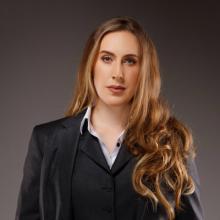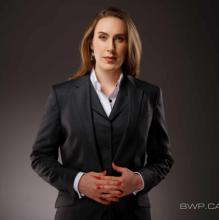Ruth Gibson
Why did you decide to pursue a graduate degree?
Upon completing my Master’s degree, I had an overwhelming desire to put my education to test in the world, as a way of determining the purpose for my professional career. I learned of an opening for the Chief Executive Officer for the Akbaraly Foundation, a humanitarian foundation focused on women's and children's health in Madagascar. I agreed to take on the challenge of leading this foundation during a time of intense international scrutiny and political upheaval. I had studied global health and human rights and I naively thought I could apply those principles directly onto the political landscape in Madagascar. After Madagascar I took on projects in Turkey, China and Saudi Arabia and traveled extensively throughout Southeast and Central Asia, the Indian Continent and the Middle East. I began to ask myself more questions about how my skill-set was going to help me address the problems I had seen in the world. I needed a background in the topic areas that kept me up thinking at night. I needed to understand International Relations, I needed to understand International Law and geopolitical strategy. A PhD would give me some credibility in these fields, and if I figured out a way to combine them, then my skill-set might have use in affecting change in some of the problems I had seen in my work and travels.
Why did you decide to study at UBC?
The University of British Columbia has a very unique PhD program - The Interdisciplinary Studies Graduate Program (ISGP). Through this program I would be given access to every department at the University. This means I could study International Law through the Allard School of Law, take International Relations courses through the Political Science department and have mentorship from any professor who deeply inspired me. This was a rare opportunity.
What is it specifically, that your program offers, that attracted you?
My program - the Interdisciplinary Studies Graduate Program (ISGP) - was immensely supportive of my academic interests. They offered me a four-year scholarship through the department to enable me to start right away, even before I had applied for university-wide or Canada-wide competitions. The department chair at the time, Dr. Steven Taubeneck, and the program lead, Enid Ho, spent hours getting me oriented to the University and helping me figure out ways to design my course of study. The program was a small cohort of students, which meant I would have the opportunity for one-on-one guidance.
What was the best surprise about UBC or life in Vancouver?
I was surprised by the beauty of UBC's campus.
What do you see as your biggest challenge(s) in your future career?
I am not a pure discipline scholar. This means I will not neatly fit into any one field of academia, nor will I be an expert in only one field. As an interdisciplinary scholar, I will need to combine my fields with the rigor that pure discipline scholars adhere to. My problem is I will have to create this metric and then prove it to be a metric worth noting. Outside of academia, I think my skills as an adviser will be of use. I have on the ground experience and my PhD will give me credibility in geopolitical strategy.
It is incredibly important to find supervisors who are able to bounce around ideas that are not fully formed. Doing a PhD can be a daunting process, and ideas never emerge solved. Being an academic is an iterative process. Having mentors who can help guide you on this messy and iterative journey is hugely important.
How do you feel your program is preparing you for those challenges?
I receive a great deal of guidance from the Interdisciplinary Studies Graduate Program on strategies to become a successful interdisciplinary scholar. The department has provided me with boundless support in applying for opportunities and advocating for me.
What aspects of your life or career before now have best prepared you for your UBC graduate program?
My life and work abroad prepared me for my course of studies. When I am in class learning theories, I am able to apply those theories to things I have seen, while living in overseas. If I had never lived overseas, then I would be learning theories, but I would not be digesting and contemplating them in relation to what I have witnessed.
What do you like to do for fun or relaxation?
I love to run. Running is my escape. Every place I have traveled to, I always have my running shoes. When I lived on a compound in Saudi Arabia, I would wake at 4:30 a.m. to run laps just inside the walls of the compound, before the sun came up and temperatures rocketed to 50 degrees Celsius or higher. In Madagascar I would run the rice paddies, with farmers moving their Zebu to graze, or herding their ducks to ponds where they could hunt for food all day. In Vancouver, I run through Pacific Spirit Park and along the waterfront.
What advice do you have for new graduate students?
It is incredibly important to find supervisors who are able to bounce around ideas that are not fully formed. Doing a PhD can be a daunting process, and ideas never emerge solved. Being an academic is an iterative process. Having mentors who can help guide you on this messy and iterative journey is hugely important. If you are asked for perfect constructed ideas, consider finding someone who can talk to you. Conversations and bouncing around concepts will take you a long way in developing your ideas.

